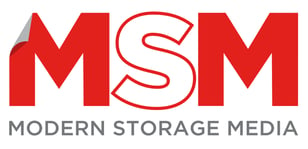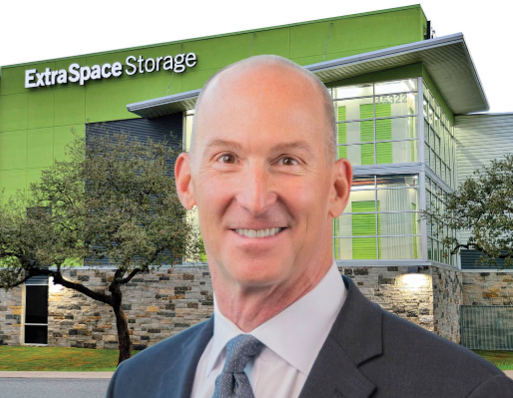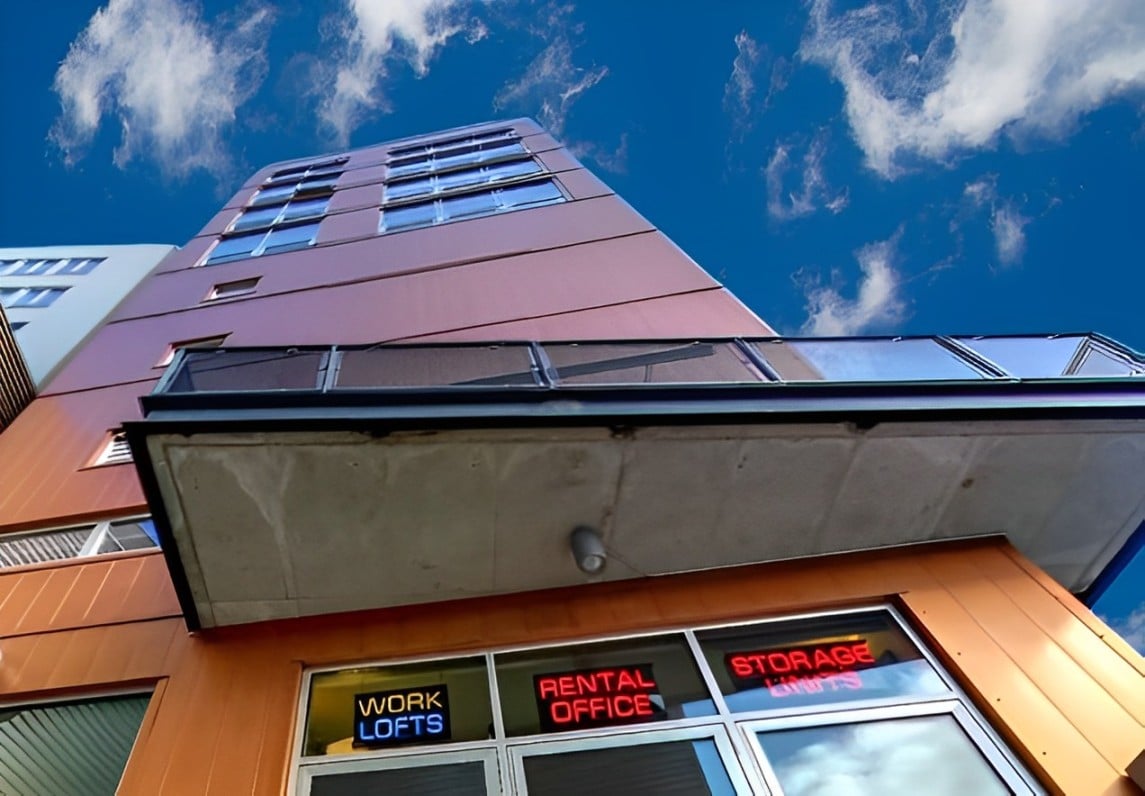Look Who's Talking: Chuck Gordon, CEO of SpareFoot, SiteLink & storEDGE
Despite being at the tail end of a development cycle, the self-storage industry experienced a significant uptick of new supply in 2018. Similar to 2017, many markets across the country were inundated with additional ground-up facilities and infill conversion projects thanks to continued interest in the sector from new investors as well as developers who were eagerly building storage sites with the intent of selling them through Certificate of Occupancy deals with REITs/large operators or having them managed by third-party management companies.
According to Chuck Gordon, CEO of SpareFoot, SiteLink, and storEDGE, the proliferation of ground-up development resulted in pricing and occupancy pressure across the country. Unfortunately for some markets, there are still plenty of new self-storage developments in the pipeline or planning stages that are expected to open in 2019. Consequently, as storage supply continues to surge, increased competition is becoming problematic for rental rates in numerous MSAs.
Pricing Pressure
Through SpareFoot, the Austin, Texas-based self-storage aggregator company he co-founded in 2008, Gordon has observed the ample amount of new supply coming on line. “There’s more inventory being added to the SpareFoot platform in a big way,” he says. For example, in Houston, Texas, approximately 100 more facilities utilized SpareFoot in 2018 than in 2017.
“This speaks to the condition of the market,” says Gordon. “Clearly, there’s a lot of new supply.”
Although that is only one of the country’s MSAs, Gordon states that plenty of new facilities have employed SpareFoot’s services in the past several months in an effort to remain competitive within their markets as new competition continues to pop up around their self-storage sites.
However, it isn’t advised to use SpareFoot or similar services to compete based on price. Instead, Gordon encourages owners and operators to leverage self-storage aggregator and reservation websites to monitor their markets.
“Keep an eye on what others in the market are doing,” he says. “You don’t have to drop rates.”
While it is easy to succumb to pricing pressure, especially when competition is fierce, owners and operators are encouraged to sell their sites’ services, amenities, and standout traits. For instance, if you are located on an easily-accessible stretch of a major thoroughfare, be sure to mention your facility’s hassle-free entryway that saves customers both time and headaches. Or, perhaps your self-storage property has the latest and greatest technologies in place; tout the fact that tenants can enjoy intuitive, self-service move-ins and make payments anywhere from their mobile devices.
Basically, anything that makes your self-storage facility unique compared to the others in your service area should be highlighted in your marketing, advertising, and promotional materials instead of focusing on your rental rates.
Because rates have started to decline in some of the MSAs with an over abundance of new self-storage supply, it is important to resist the urge to lower your rate to rent a unit. Price wars impact every operator in the marketplace, and it’s a slippery slope that can be avoided.
Remember: The majority of prospective tenants and current customers care more about cleanliness, friendliness, and safety/security than price. They want to know that they will be safe on your property and that their belongings will remain in the same condition as they first left them while in storage. Therefore, don’t forget to promote any affiliations with neighborhood watch programs, advanced security features, or even preventative measures such as pest controls. Visible window decals are usually enough to get the point across that the Orkin Man and K-9 dogs make regular rounds to keep creepy-crawlies and crooks at bay, but it doesn’t hurt to mention these safety measures during your sales pitch.
What’s more, it’s best to keep concessions and specials to a minimum for the sake of your site’s economic occupancy. Make this your mantra: Your facility’s features and your efforts make it worth the rental rates you have in place.
Corporate Consolidations
In addition to gradually declining rental rates, increased competition within the industry has resulted in some consolidation. REITs as well as mid-sized and large operators have been joining forces to strengthen their brands and create economies of scale. Mini-Storage Messenger’s annual Top Operators, which was published in November, shows that consolidation among the leading self-storage operators is an ongoing occurrence. In 2018, for example, the real estate investment trust National Storage Affiliates (NSA) formed a joint venture to acquire a 112-property portfolio of Simply Self Storage facilities. This $1.325 billion acquisition stripped Simply Self Storage of its former top operator status; it had been ranked as the seventh largest operator in 2017.
While industry consolidation of that nature has been happening for years, partnerships and acquisitions among self-storage vendors and suppliers are occurring more frequently and are expected to continue as companies seek to expand their products and services.
Gordon decided to take that path last year for SpareFoot, acquiring both Raleigh, N.C.-based SiteLink and Westwood, Kan.-based storEDGE in 2018. His goal: To create an integrated, one-stop shop for the technology aspects of the self-storage businesses. With the three companies combining their efforts, products, and services under one umbrella, Gordon’s company aspires to be a single vendor that can provide everything a facility needs to operate better.
By uniting these companies, Gordon will be able to help self-storage owners and operators save both time and money. “There are so many benefits,” he says. “A single, integrated platform lets owners and operators be more effective and make more money.”
Essentially, he is creating efficiencies on behalf of his customers because all of the companies’ products will be seamlessly integrated to work together. Gordon notes that before these mergers, the self-storage industry did not have a single vendor that could provide all these technological aspects; customers had to employ several different vendors to acquire and/or utilize every necessary piece of the tech puzzle. As of November, the companies are working hard on the launch of storEDGE’s new website product to all SiteLink customers. “The tech is fantastic,” he says. “It is a game changer compared to website products available before.”
“We’re trying to be a central hub for technology,” says Gordon, adding that long-term oriented private equity firm Cove Hill Partners has backed the acquisitions and will enable the company to expand in the future. “Today we offer software, merchant services, lead generation, websites/marketing services, and cloud access control. We’d like to add more products into the suite.”
While Gordon couldn’t yet discuss upcoming acquisition plans in detail, he mentions that they are considering adding other elements to their steadily increasing list of offerings. “We’ll build or buy products depending on the situation.”
From their sales teams to their customer service teams and technical support teams, the companies are combining all their efforts to improve their customer relations and products. “We had separate customer facing teams before,” says Gordon, “but combining them will enable even better customer service than any of our companies had independently.” He adds that the consolidated teams enable the companies to be more dedicated to their customers.
Moreover, the companies, which intend to keep their existing individual branding, are well on course to becoming a global vendor thanks in part to SiteLink’s presence in 60 countries.
Unite To Expand
When you have a shared vision, comparable cultures, and a clear direction, it only makes sense to consider creating partnerships or joining forces with other companies to increase everyone’s likelihood for success. As Gordon sees it, uniting the workload and sharing strengths is a practical way to improve products/services and propel them into the forefront of customers’ available options.
“We plan to keep expanding,” he says. “We’re excited about the future and our integrated products. We’re working hard to make it happen.”
–
Erica Shatzer is the editor of Mini-Storage Messenger, Self-Storage Now!, and Self-Storage Canada.
More Content
Popular Posts
The self storage industry is in a precarious...
The REITs new pricing strategy – lowering...
With the approval of both companies’...
Recent Posts
Ramey Jackson is the CEO of Janus...
Imagine preparing to move and needing to...
Owning or managing a self-storage facility...
Helen Keller is quoted as saying, “Alone we...
It’s often been said that “opportunity is...
There’s a saying in Florida that there are...
The landscape of the self-storage industry...














